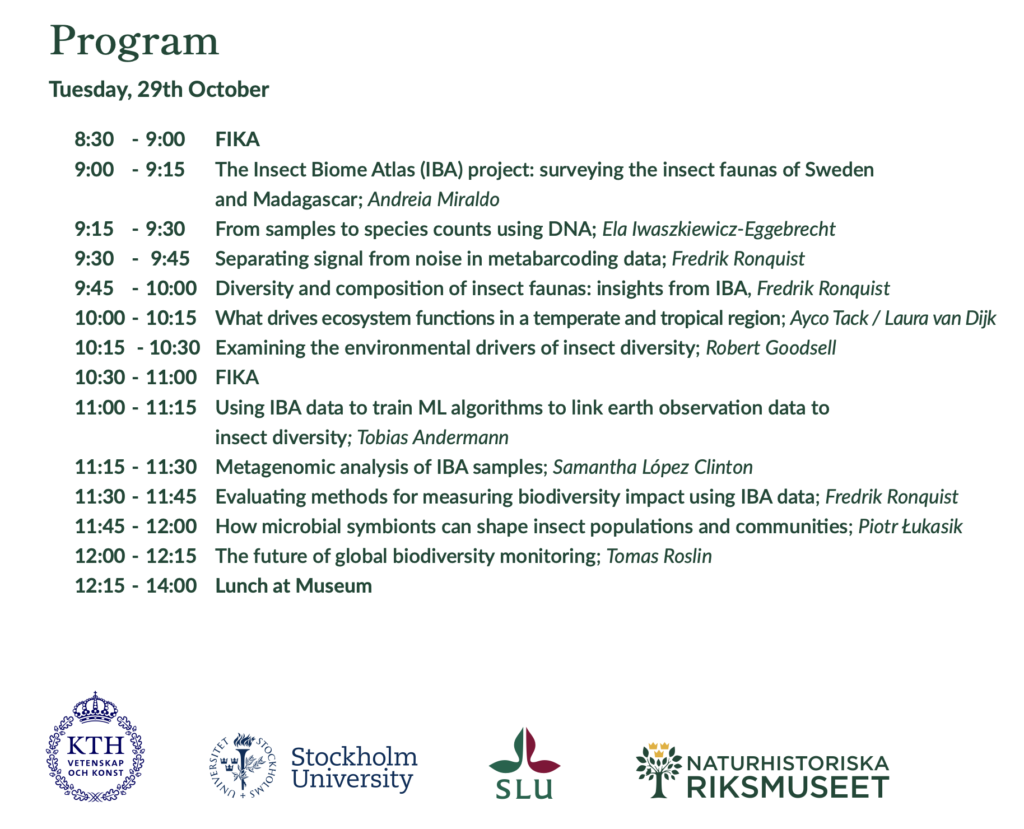Ronquist lab, Swedish Museum of Natural History, Stockholm
Application deadline: November 30
Our group develops methods for Bayesian phylogenetic and phylogenomic inference. We are particularly interested in applications to problems in evolutionary biology, biogeography and biodiversity. The lab is part of the interdisciplinary Stockholm Phylogenomics Group with participants from SciLifeLab, KTH, Karolinska Institute, and Stockholm University.
In this project, funded by the Swedish Research Council, we are developing the next generation of Bayesian phylogenetics software, an R-like computational environment (RevBayes) allowing users to build complex evolutionary models for simulations and Bayesian inference. You will be expected to contribute to this computational environment while developing an independent, methodological or empirical research project where Bayesian phylogenetic computation plays a central role.
We expect you to have a doctoral degree in evolutionary biology, bioinformatics, mathematics, statistics, or computer science. Regardless of your background, you should be comfortable with mathematical and statistical reasoning, be a skilled C++ or R programmer, and have solid experience working with empirical research problems of scientific significance.
We expect that you will be creative and independent while being a good team player. Fluency in spoken and written English is essential. We will pay particular attention to scientific talent and potential.
The position is for 18 months, with possible extension. Starting date is flexible.
For more information about the position, contact Professor Fredrik Ronquist, Head of the Department of Bioinformatics and Genetics. Email: fredrik.ronquist@nrm.se; voice: +46-8 5195 4094.
Submit your application here or as a pdf to Fredrik Ronquist no later than November 30, 2013. The application should be in a single PDF and should consist of a personal letter, a description of the planned research project, and a CV.


